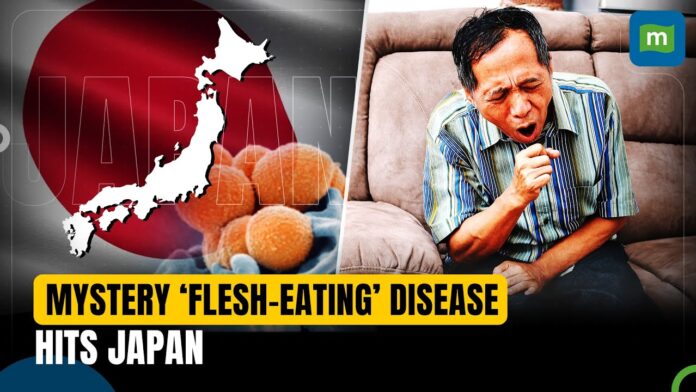Officials in Japan are alarmed by the rapid spread of a rare and deadly flesh-eating bacterial infection, with cases of streptococcal toxic shock syndrome (STSS) reaching unprecedented levels, as reported by The Japan Times.
STSS, associated with a mortality rate of 30%, is primarily caused by group A streptococcus bacteria. The surge in cases has perplexed medical experts, prompting urgent calls for heightened hygiene practices such as handwashing and thorough wound care to contain its transmission.
Japan’s National Institute of Infectious Diseases (NIID) acknowledged significant gaps in understanding the mechanisms underlying severe streptococcus infections. Despite historically averaging 100-200 annual cases since its identification in 1992, the incidence skyrocketed to 894 cases in 2019.
Strep A, commonly causing sore throats, particularly in children, has been the predominant culprit behind STSS. However, it poses a grave risk to adults over 30, particularly the elderly, with an evolving trend showing increased mortality among those under 50, as highlighted by the Asahi Shimbum.
STSS can progress rapidly, leading to tissue necrosis and organ failure. Treatment involves antibiotics, often necessitating surgical intervention to remove affected tissue in severe cases.
Some health officials attribute the surge in cases to the relaxation of pandemic restrictions following the decline in COVID-19 cases. Health Minister Keizo Takemi emphasizes preventive measures like hand hygiene and cough etiquette to mitigate the spread of the infection.


